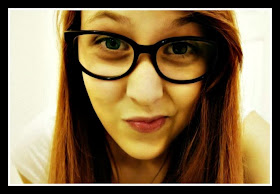Out of my five children, one has perfect vision, one wears glasses for reading and three wear corrective glasses all of the time. Needless to say, opticians, eyesight and the issues surrounding wearing glasses have been a major part of our family life.
Myopia (or shortsightedness) affects 1 in 6 of the world's population, typically developing by the age of eight and worsening throughout the teenage years. This has been typical of the condition in my eldest son Joe, now 25 and my daughter Ella who is 17. Both permanently wear glasses to correct their vision. Four year old Freddy has Amblyopia in his left eye and has worn glasses since he was two years old.
Some research has been done on the subject of Parent’s & Children’s Views & Attitudes About Vision
Correction by Mumsnet on behalf of Johnson & Johnson Vision
Care, manufacturer of ACUVUE® Brand Contact Lenses.
When a child becomes a teenager, they reach a very critical and vulnerable time in their life where they face multiple challenges: they are tested physically, academically, personally and socially. The issue of vision correction can add to their problems. Wearing glasses can mean teens find it difficult to take part in sporting activities. Taking them off to participate means they can't see what they are doing, which can lead to further embarrassment. Some may feel insecure about their physical appearance and their social acceptance by their peers. This insecurity can lead to youngsters not wearing their glasses at school, which can adversely affect their academic performance. Sometimes wearing glasses is not the best option for a youngster who needs vision correction.
Studies show that for some children, wearing contact lenses can have benefits that go beyond simply correcting a child's vision and can offer significant benefits to some children. According to research, children who wear contact lenses generally feel better about their physical appearance, athletic ability and social acceptance compared with children who wear glasses. These children also report greater comfort with peer perception and higher satisfaction when engaging in social activities. Contact lenses can even help to improve academic confidence in some instances.
We have contemplated the use of contact lenses with our older children, in particular Ella. Ella's last pair of glasses had small, rectangular lenses which meant she'd constantly look over the top of them, disturbing her vision. This lead to her getting some quite severe headaches. This was a real problem associated with glasses wearing that we hadn't anticipated. Thankfully her new specs have stopped this problem, but it's definitely worth considering the pros and cons of all the available options for vision correction. As a young woman, image is very important. Although I think she looks beautiful in her new designer glasses, there may be times when she could feel more confident without them. On nights out, for special events or on holiday, the freedom of being glasses-free could be a real benefit.
As Ella is soon to embark of the challenges of leaving home to go to university, this is the time for us to seriously think about the option of contact lenses as a possible permanent solution for vision correction. Anything that can make life easier and boost a teenager's confidence during the more vulnerable times in their life is something worth considering.
I've always believed that contact lenses are something solely for adults, but according to studies, children as young as 8 years old are capable of wearing them and caring for them. Age is not the sole factor in deciding whether a child is a good candidate for contacts, but being young doesn't rule them out from consideration. I was really surprised by this, particularly as this bodes well for Freddy in the future who has one perfectly good eye and one which needs vision correction. It could mean that when he is older he may be able to go glasses free and enjoy sports and physical activities unhindered, by wearing a single contact lens in his bad eye. For a physically active child this could be extremely liberating, giving them the opportunity to join in without the worry of breaking their glasses. It is definitely something that I will be asking about in a few years time.
Both glasses and contact lenses are good options for people
who need vision correction. Parents should talk to their eye care professional
about what vision correction options are best for their child. To locate an Eye Care Professional in your
area, visit the “Find an Optician” tab at www.acuvue.co.uk.

